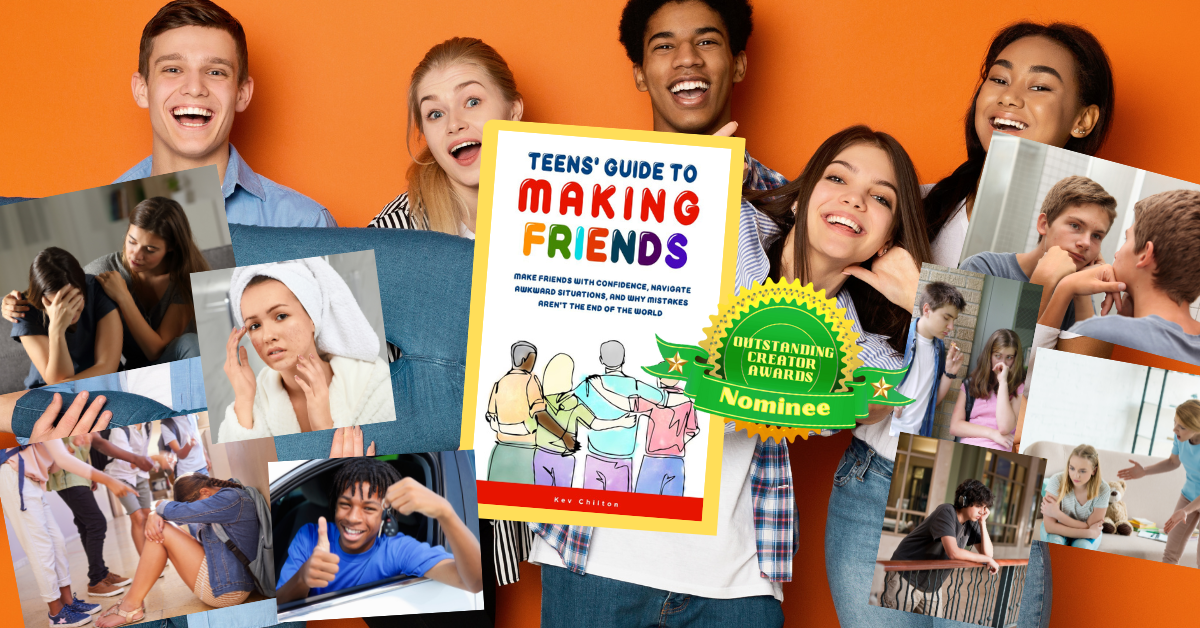|
Score: 94/100 (9.4 out of 10)
This is a book that we wish every teen and young person would read. This should be standard reading for every 9th grade class, if not earlier. Really, only some brief crude language is preventing us from recommending it for 6th graders. The truth of the matter is, they hear those sorts of things on TV, the radio, and from their friends all the time. This book is a treasure trove of information and life education for young people, things that they're sadly not getting from schools, homes, online, and from Hollywood. Life education is something sorely missing from our school/education system. Kids learn math, science, and how to write (we think...), but they often miss basic knowledge and skills like how to socially interact with others, how dating works, what happens when your body starts changing (like menstruation), how to read social cues, signals, and body language; how to make friends and allies, how to make money, and how to just be happy. A lot of times, kids develop an unhealthy view that happiness comes from getting attention from others, being liked by others, and/or being approved by others. Ultimately, this leads to them feeling unfulfilled, unhappy, depressed, or miserable because these things come and go. This can lead to negative thoughts, a feeling that they're not good enough, handsome/pretty enough, skinny enough, muscular enough, tall enough, smart enough, or cool enough to be accepted or liked. That's pretty much the heart of this book: it's about helping young people to understand that life isn't about being like everyone else and fitting it, it's about being the best YOU that you can possibly be. Confidence and positivity are infectious and contagious. A smile, a good sense of humor, kindness, friendliness, and a positive attitude are more attractive than a set of abs, large breasts/butt, an hourglass shape, or anything superficial like that. Few things are more UN-attractive than insecurity, desperation, clinginess, lack of confidence/self-esteem, and fakeness. People have a built-in “phony meter” or “phony radar” that can detect when they're being sold, tricked, or lied to. Therefore, trying to be a perfect plastic doll, Olympia-level bodybuilder, or a super model just to achieve an “ideal” to impress others usually results in harmful consequences like body image problems and eating disorders. This is a huge part of this book. This book reminds the young reader that what they see on social media and TV is largely fake, photoshopped, or otherwise altered to portray something bigger and better in order to sell things. This book tackles the idea of “the norm” with great vigor. Of course, you still want to take care of yourself. You don't want to look homeless or look like you don't care about yourself via poor hygiene. People care about people who first care about themselves (to a degree). No, we tend not to like narcissists, but we do tend to like people who make an effort and who inspire confidence in us. In a lot of ways, caring leads to a lot of other good things like good hygiene, eating good, and exercising. This book continually reminds the young reader that their body is undergoing changes brought about by hormones and puberty. This includes things that they may become self-conscious of like bigger body parts, new feelings, and weight gain. We really appreciated the content and heart put into this book. It can be very eye-opening for young readers. Check it out on StoryOrigin!
0 Comments
Leave a Reply. |
Archives
July 2024
Categories |

 RSS Feed
RSS Feed